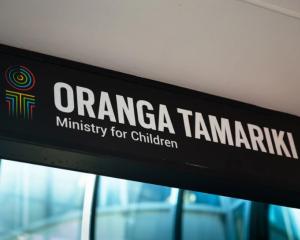
The supermarket chain plans to phase caged eggs out of the North Island by 2024, expanding to the rest of the country by 2025.
This extends Countdown's earlier commitment to transition to free range and barn only in its own brand eggs by the end of 2022.
Last week Countdown's largest egg supplier, Mainland Poultry, made a new commitment to the company to provide a considerable increase in the amount of barn eggs they will supply to meet expected future customer demand.
This comes on top of new investments in more free range and barn egg capacity made by Countdown's smaller supplied and Egg Producer Programme members, Wholesome NZ, Otaika Valley, and FRENZ.
General manager for corporate affairs James Walker said the company was confident it could source the 150 million free range and barn eggs needed each year to meet the 2025 target.
He said assurances from Countdown to its suppliers that the supermarket chain would buy barn and free range eggs meant farmers could commit to investing in new infrastructure which would allow them to produce non-caged product.
Building the infrastructure needed to produce 150 million more barn and free range eggs annually would take time, he said.
"It's not like we could just order those eggs today and have them arrive tomorrow, because those chickens don't exist yet," Mr Walker explained of the 2025 target.
He told the New Zealand Herald he thought the move could change the egg industry in New Zealand.
"This is a huge move, and one we're really proud of. Customer demand for free range and barn eggs has increased by 50 percent in the last two years.
"While customers are showing more and more demand for cage-free eggs, affordability is also a really important consideration in making this decision. As volumes of free range and barn eggs increase, we would expect prices to come down."
The Government regulation phasing out battery cages by 2022 meant there would be a shift away from caged egg production generally, although colony cages would still be legal.
Mr Walker said Countdown wanted to make it possible for barn and free range eggs to compete economically against colony cages, therefore making their use less attractive to other producers.
"We're saying look, we see the future outside the cage. We want happy hens so we're moving to free range and barn."
Mainland Poultry's managing director Michael Guthrie said as New Zealand's largest egg producer, the company knew public demand for free-range was increasing.
"For some time now, we've been talking to Countdown supermarkets about what it would take to be able to produce cage free eggs in larger volumes.
"We're now in a position to commit to supporting their target of being cage free. We will be bringing on new volumes of free range and barn eggs to do this."
FRENZ director Rob Darby said the company was "delighted" to support Countdown in their pledge and that they had been working on the proposal together for some time.
"The demand from retailers and consumers for high quality, free-range eggs is very real and we're hoping this transition is the catalyst for other farmers to change their ways and move to cage-free as well."
FRENZ have 15% of all egg farms in New Zealand but only supply about 2% of the nation's eggs.
The Countdown announcement means FRENZ has a 30% annual growth target to keep up with the demand of Countdown and other supermarkets.












